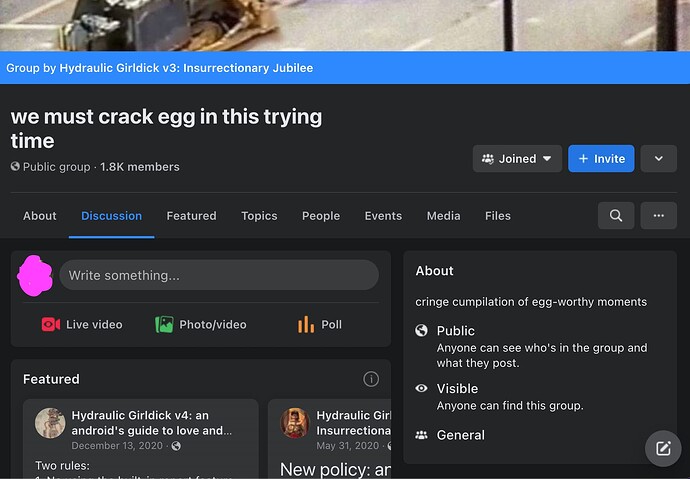I hope I’ve found my fediverse server! It’s looking good so far.
Groups are so important. I’m sure I’m going to say what others have already said, but I figure my speaking too still adds weight to the vision.
What I want as a user is to be able to create an akkoma group for my real life group. Just like we meet at someone’s house, we meet in this group. It’s really how I think about groups. Real life groups are public, private, or secret. Ideally this group works over federation, but if akkoma instances only, or if my instance only, I’d get a lot of use from it just the same. (I’m not clear what the broad scope of a group can technically be. Could activitypub do this?).
So as a user, I want to create a group I administer and appoint moderators. Admin can make it public (where posts are visible to unjoined people), private (where the public can see the name of the group and it’s description, but not it’s posts), or secret (where the groups existence isn’t visible without invitation) . Visible groups can have a request to join and require approval. A public group could have an option for automatic approval.
As a user, I want to see a list of public and private groups available on my local instance. (it’s hard to imagine beyond locally for this).
As a user, I don’t want individual posts from a group mixed in with my local or fediverse timelines. Perhaps timelines for local and fediverse could have an item indicating a new post from a group, but I don’t see the post itself. When I click it, I am taken to the page for that group. I always want to understand when I’m about to post to a group. What happens in group club …
As a user, I want to have a visual cue as to who else is in the group I’m viewing. Newest members since I last viewed the group are listed. A full list is a click or a hover away. I’d want to be able to search/list/sort members for a group, etc.
As a user, I’d absolutely want to know if someone I’ve blocked is in a group or joins a group I’m in. Perhaps we’re both in the same group, but their posts are not viewable unless I take an action.
A group moderator should have all the same power as the admin, with the exception of demoting or removing the admin from a group. Should the admin of a group go missing, the group can carry on without them.
Beyond the obvious moderation powers, Group moderators should be able to freeze the group (prevent new posts from normal users), or even make the groups posts invisible. Sometimes bad things happen, and moderators need a quick power to deal with it.
As a user, I think I’d like to auto join people to a group. The other person could still get an approve/refuse button or similar. I’m really thinking about something I do on my iPhone frankly. Messaging multiple people essentially creates a group chat right then. I see it as a group chat in in my list of chats. The other people responding to it are also responding to everyone in the group. I’m curious what people think about this one. A person should be able to refuse a group chat, but quick creation and posting of something important is something I’d really want as a user.
I hope the above thoughts are welcome even if not agreeable. And thank you for akkoma! I like what I see here.

